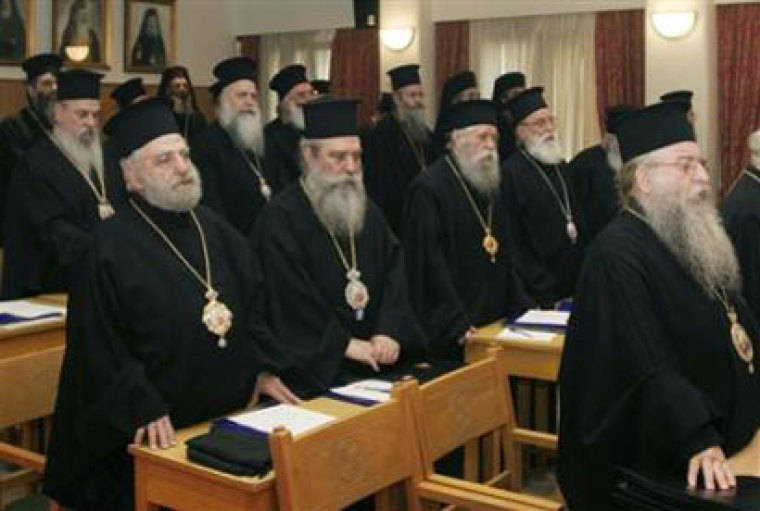
On Friday, the Greek Orthodox Church called for an emergency meeting to discuss a major reform to be launched. The move comes after the Church was rocked by overwhelming scandals on sex and finance over the past two weeks, and has been triggered by increasing pressure from the public and the government.
The 102-member Holy Synod, governing body of the Church, meets in Athens from Friday to Saturday. Yesterday, the head of the Greek Orthodox Church worldwide, Archbishop Christodoulos, made an apology to the whole nation regarding all the embarrassing misbehaviours of priests and senior clerics that have continually been unveiled.
"I humbly ask for forgiveness from the people and the clerics who, in their majority, honour...the cassock they wear," Christodoulos said in his opening statement. He called the crisis "particularly grave", while some others described the situation as a religious "tsunami".
The entire story began on 3th February when a priest, Iakovos Giosakis was suspended after he was charged by a prosecutor with smuggling antiquities. Giosakis is also under investigation facing criminal charges for bribery and money laundering.
Additionally the next day, Metropolitan Bishop Panteleimon of Attica was suspended for six months over allegations of embezzlement. He was also accused of broadcasting wiretaps of sexually explicit telephone conversations involving senior clergy by private TV stations.
Meanwhile, the Church is investigating four other clerics, including a 91-year-old metropolitan bishop, after a photo published in an Athens daily allegedly showed him nude in bed with a young woman.
All scandals have seriously damaged the reputation of the Church as well as the head of the Greek Orthodox Church, Archbishop Christodoulos. Whilst there is a close bondage between the Orthodox and social, political and cultural background of Greece, the public is very disappointed with the Church.
A poll published last week in an Athens newspapers showed Christodoulos' popularity has dropped drastically from 68 percent in May to 43 percent this month.
Even though the scandals have clearly hurt the Church, the crisis becomes a new opportunity for the Church to evaluate and improve its administration.
"We are witnessing a crisis in the church," Culture Minister Fani Palli-Petralia said on Thursday after a meeting with the prime minister, "I believe the church will come out of this crisis stronger. This is a demand by all of us."
On Saturday, a series of measures proposed by the archbishop, including greater involvement of civil overseers in the church's financial dealings and "ethical misconduct", are going to be approved by the Holy Synod. Seminary students may also lose their exemption from military service which is an obligation for nearly every Greek man.
Furthermore, a call for reformation of the Church-State relationship has been renewed due to the outrage amongst the public and the desperate demand for a sweeping change of Church leadership. Some law-makers suggested stripping the Orthodox Church of its status as the official state religion despite the fact that this would require a constitutional change.
Religious commentator say that this proposal is almost unthinkable because historically the church and the politics in Greece are intertwined. According to a poll published on Sunday by Kappa Research, almost 65 percent of the public support such a reform. The integrity of the Greek Orthodox Church is obviously very low at this moment.